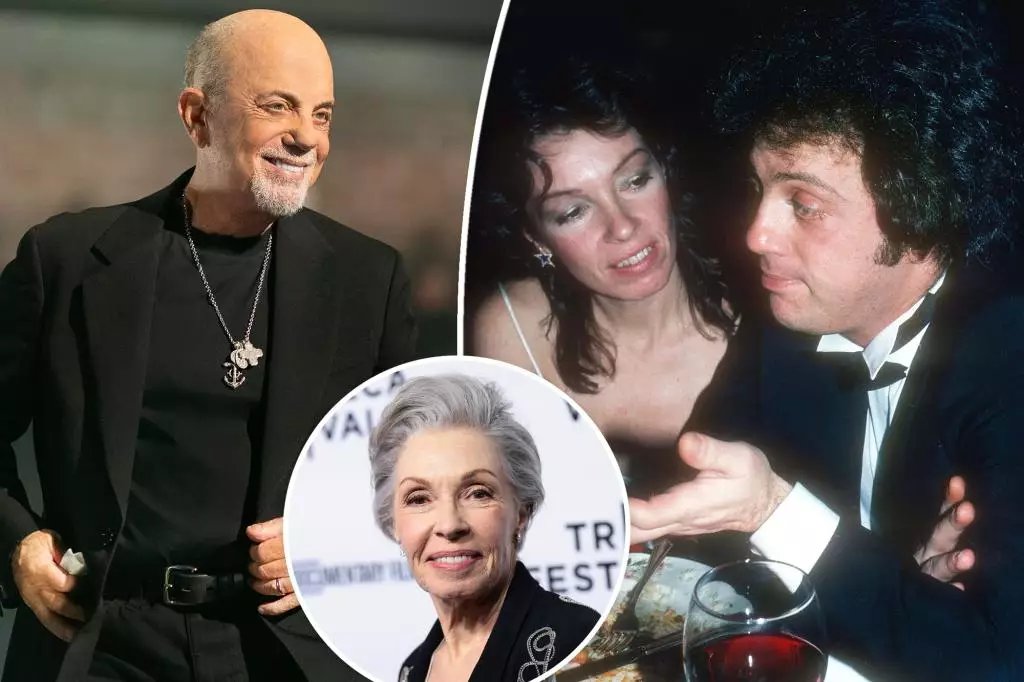The world of celebrity often presents us with a simplified narrative of love and heartbreak, but the reality is far more intricate. The lasting relationship between Billy Joel and his first wife, Elizabeth Weber, is a striking example of how personal connections can be fraught with complexities and nuances that elude public understanding. Weber recently shared her thoughts on their relationship during the Tribeca Festival premiere of the documentary “Billy Joel: And So It Goes,” revealing that while they remain “friendly but not close,” the reasoning behind their divorce runs far deeper than the typical tabloid fodder. This statement is a powerful reminder that even in high-profile situations, relationships cannot be understood solely through headlines.
Weber’s frank admission underscores a reality that many fail to grasp — sometimes, love simply doesn’t last. Her mention of needing distance after their separation is a reflection of the unique challenges that arise from the intense scrutiny and pressures of a public life intertwined with personal dynamics. The phrase, “I wouldn’t be here tonight!” serves not only to deflect sensational questions but also to assert her independence from a narrative that seeks to pigeonhole her solely as an ex-wife.
The Relationship’s Evolution
At the core of Joel and Weber’s relationship lies a classic tale of passion and destruction, a connection ignited during tumultuous circumstances. Their love blossomed when Joel was living with Weber and her then-husband, Jon Small. The dynamics of their initial connection — one fraught with betrayal and a subsequent struggle for understanding — led to profound emotional upheaval. Joel himself has been candid about his guilt and struggles during this period, suggesting a man wrestling not only with his passions but also with deep moral dilemmas. The rawness of such experience has fueled his artistry, yielding some of his most poignant music.
This entanglement took a toll on both parties, with Joel in particular revealing his suicidal thoughts during that tumultuous phase of life. Such admissions are stark and serve as a critical lens through which to view the artist’s struggles. The shadow of mental health looms large over this narrative, emphasizing that even amid professional success, personal tragedies can manifest in unexpected ways.
The Price of Fame
As Weber pointed out, the rock-and-roll lifestyle has traditionally marginalized women, creating a landscape where public perception can be harsh and unforgiving. Her remarks on the music industry open up a larger discussion about the treatment of women in entertainment — a topic that deserves more scrutiny than it often receives. The stigma attached to her former relationship with Joel has undoubtedly impacted her life, casting a long shadow over her personal achievements and ambitions. Weber’s resilience becomes evident as she states, “I have my life, I do what I do,” showcasing a tenacity that inspires others navigating similar challenges.
Moreover, Weber’s reflections on the iconic song “Just the Way You Are,” famously written for her, shine a light on the bittersweet nature of love — how something that was once a symbol of affection can morph into a haunting reminder of what once was. Her pride in the song, despite its complex wrestling with personal history, is a testament to an evolved perspective that embraces both past and present.
A Legacy of Art and Healing
In the wake of their separation, Joel’s relationship with Weber has morphed into something more intangible yet mature. While he rarely performs “Just the Way You Are” today, the song lives on as a beloved classic, transcending the immediate complexities of their relationship. The art itself becomes a vessel for healing, showing that even painful backstories can lead to beautiful creations that resonate with countless others. Weber’s insights into how Joel’s lyrics have touched many underscores the transformative power of music.
As “Billy Joel: And So It Goes” prepares to stream on HBO Max, viewers can anticipate a rich exploration of not just Joel’s life and music but also the intricate relationships that have shaped him. This documentary is an opportunity to reflect on the gravity of personal history as it intertwines with artistic expression. It serves as a gentle reminder that life is not merely a series of events to be aggregated, but a tumultuous journey marked by love, loss, and above all, growth.
